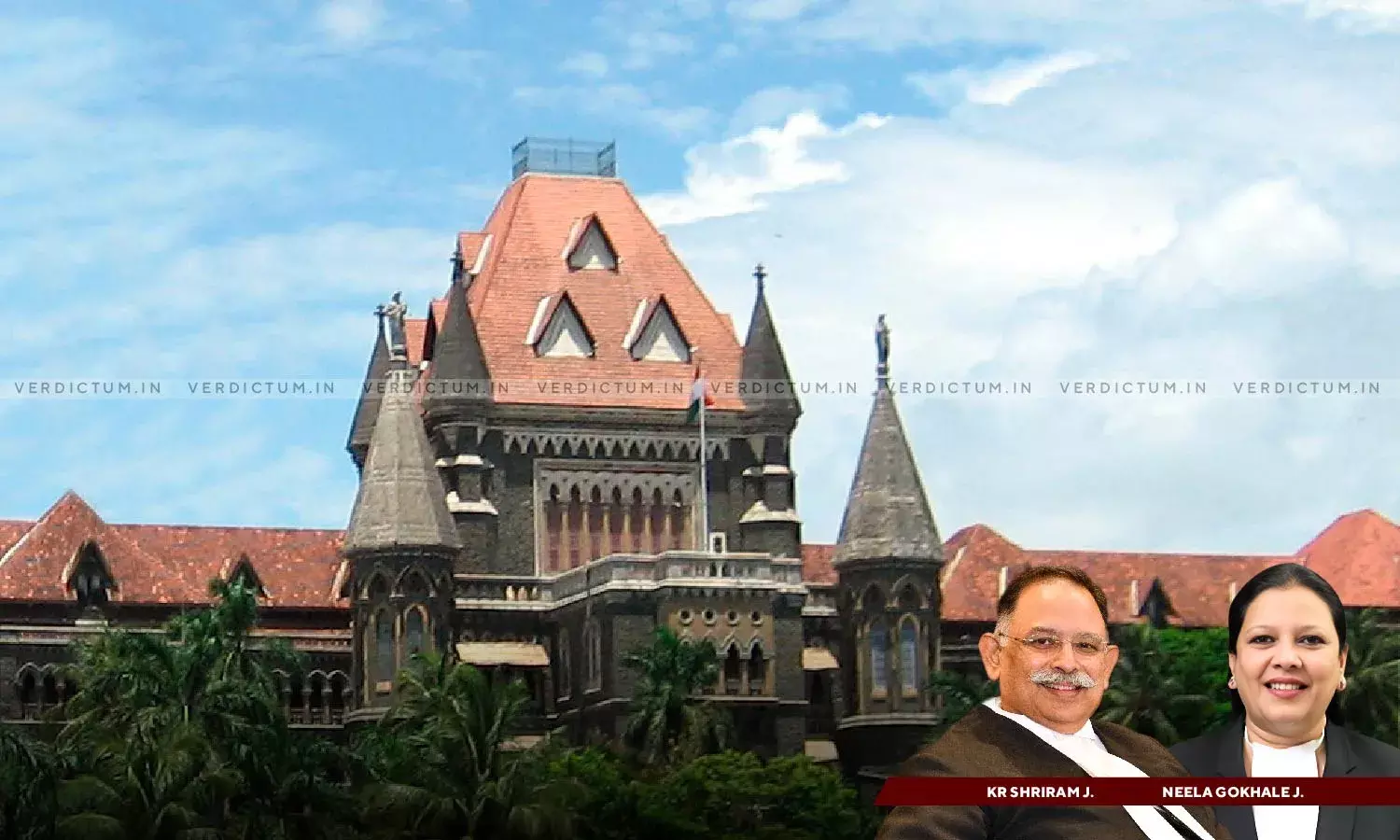Income Tax Act | Assessing Officer Must Record And Give Cogent Reasons For His Dissatisfaction With Assessee’s Expenditure Claims: Bombay HC
The Bombay High Court observed that the Assessing Officer should record as well as give cogent reasons for his dissatisfaction with the assessee’s expenditure claims.
The Revenue Department preferred an appeal under Section 260A of Income Tax Act, 1961 after it was aggrieved by the decision of the Income Tax Appellate Tribunal (ITAT).
The bench of Justice K.R. Shriram and Justice Neela Gokhale observed, “The most fundamental requirement, therefore, is the Assessing Officer should record his dissatisfaction with the correctness of the claim of Assessee in respect of the expenditure and to arrive at such dissatisfaction, he should give cogent reasons.”
Senior Advocate J.D. Mistri appeared for the Respondent.
Brief Facts-
For Assessment Year 2008-09, the Assessee, M/s. Tata Capital Ltd. filed a Return of Income declaring NIL income but received significant dividends and claimed them as exempt under Section 10(34) of the Income Tax Act, 1961. The Assessing Officer observed discrepancies in the claimed exemptions and disallowed Rs. 18,46,00,000/- under Section 14A read with Rule 8D of the IT Rules.
Assessee’s appeal before Commissioner of Income Tax (Appeals), Bombay was allowed by the CIT(A). The CIT(A) deleted the disallowance made by the AO holding that the AO had not recorded his findings about the correctness of the claim of the Assessee in respect of such expenditure about exempt income. The CIT(A) had further observed that Rule 8D is not automatic and the AO ought to have given reasons.
The ITAT dismissed the appeal by the Revenue and concurred with the view expressed by the CIT(A).
The Court agreed with the finding of the CIT(A) and the ITAT that though the AO had stated that Assessee’s explanation was not acceptable, he had not given reasons why it was not acceptable to him.
As per the Court, Section 14A(2) and Rule 8D provided that if the Assessing Officer was not satisfied with the correctness of the claim about the expenditure made by the Assessee in relation to income which does not form part of the total income under the Act, he shall determine the amount of expenditure in relation to such income in accordance with the provisions prescribed.
The Court relied on the decision in Principal Commissioner of Income Tax (Central) v. JSW Energy Limited and quoted, “Therefore, the most fundamental requirement is the Assessing Officer should record his dis-satisfaction with the correctness of the claim of the assessee in respect of the expenditure and to arrive at such dis-satisfaction he should give cogent reasons.”
Accordingly, the Court dismissed the Appeal.
Cause Title: Principal Commissioner of Income Tax v. M/s. Tata Capital Ltd. (Neutral Citation: 2024:BOS:5897-DB)
Appearance:
Senior Advocate J.D.Mistri, Adv. Paras Savla, Adv. Pratik Poddar
Click here to read/download Judgment




